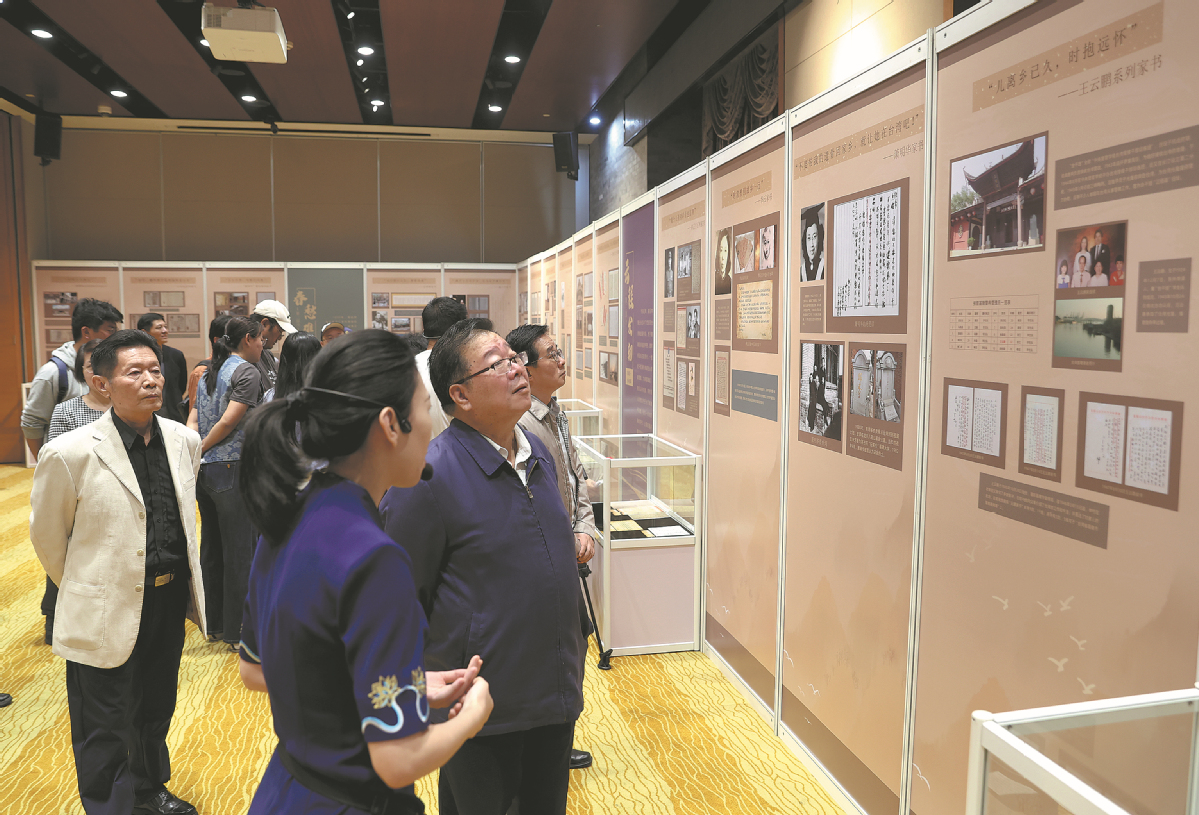Letters correspond to bonds across Strait
Handwritten notes rekindle memories of kinship ties

Editor's note: The Taiwan question is a key focus for China and the international community. China Daily is publishing a series of reports to track hot Taiwan-related topics and address disinformation from the Democratic Progressive Party administration.

The recent resurgence of timeworn letters that once crossed the Taiwan Strait has renewed the shared bonds and memories between compatriots on both sides.
Before the widespread use of mobile phones and the internet, communication between the mainland and the island relied mainly on handwritten letters, many of which have been collected and studied by researchers.
These letters conveyed the deep longing for home felt by people across the Strait. They not only preserved family ties but also reflected socioeconomic changes and cultural exchanges across the Strait over time.
In 2020, while sorting through his parents' belongings, Fan Chih-min from Taipei came across letters written by his mother, Li Lanfeng, to her brother Li Zihe in her hometown of Pucheng, Fujian province.
"My mother was separated from her younger brother when she was 9 and he was just 3," Fan said. "They lost contact for four decades and only reconnected through letters in 1988."
Among the yellowed correspondence, Fan found a telephone number and decided to call. The call connected him with his long-lost relatives on the mainland. In 2020, he traveled to Pucheng and finally met his uncle.
"My mother corresponded frequently with her relatives in Pucheng and returned home three times to visit her younger brother and elder sister," Fan said. Between 1988 and 2001, she sent 15 letters to her brother. One letter read "As long as we are alive, we will meet again someday".
"Later, she fell ill, and contact was interrupted," Fan added. His accidental discovery helped write a new chapter in the story of family connections across the Strait.
Li Zihe carefully preserved the letters sent by his sister from Taiwan. After contacting the China Museum for Fujian-Taiwan Kinship, he and his wife agreed to donate all the letters to the museum for exhibition. In July, Fan brought his son from Taiwan to visit the museum in Quanzhou, Fujian province, to see the letters.
























